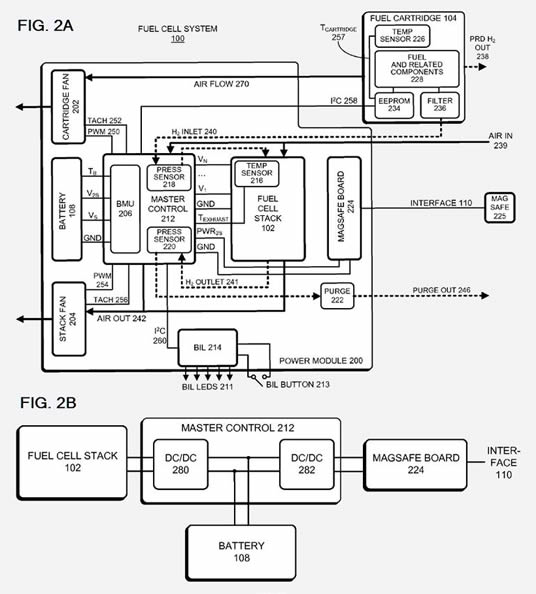Battery life issues plaguing your mobile devices? Apple could have a solution:
With smartphone battery life being of major concern to many mobile phone owners, we examine a new set of data showing how Apple are looking into new territories for their future energy source for mobile devices.
Apple now have two intriguing fuel cell battery patent application proposals, which were initially filed in 2010, gone through the motions.
Both are related to “fuel cell” technology and could help reduce the need for a heavy battery inside mobile devices.
The technology is rumoured to enable a much higher density of volumetric and gravimetric energy densities and this should enable the ongoing operation of mobile devices to carry on for much longer, even into the days or weeks territory without the need for refuelling.
This could certainly help to stop the battery issues which have plagued smartphones from the days when they started to stick dual core processors in them, and expect them to last a full day.
Apple go Eco-friendly?
Probably in a bid to save face, among other reasons, Apple seem to be pushing the renewable energy bandwagon even further up the hill into a workable battery for smartphones.
The patents provide hope that they can utilise hydrogen technology and produce a more eco-riendly energy that is based on renewable energy:
“..potentially achieve high volumetric and gravimetric energy densities, which can potentially enable continued operation of portable electronic devices for days or even weeks without refuelling.”
Internal Structure Of Fuel Cell System:

Hydrogen Fuel Cells:
Could Hydrogen fuel-cell batteries be the answer?
They are lightweight, and it would appear that Apple are focusing their attentions here, perhaps in a manner to show that they are a caring company, after a series of PR gaffs have shown that not everything Apple is all that rosy.
This new type of battery could go some way to making batteries live longer and also allow a move away from the traditional reliance on fossil fuels, they even make a note of this in their patent application.
Taking the cynical side away from this article, it will be great if this technology does prove useful, and we hope that Apple will somehow allow others to also tap into any breakthroughs as this would seriously show just how much Apple care about the environment if they were to then block rivals from also benefiting from any energy milestones that could be found.
Surely there must be a way to license the technology if the patents are upheld and a fuel-cell breakthrough is so unique in its nature.
Anthony Munns